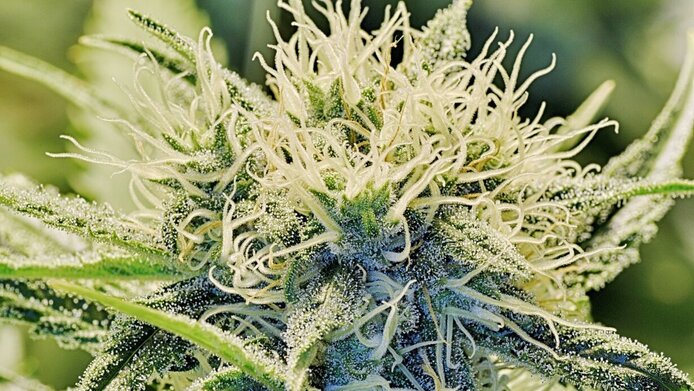Doubts about the effectiveness of cannabis against cancer

There is a hot debate surrounding the role of cannabis as a socially accepted drug. Apart from considerations of making consumption legal, cannabinoids are also being investigated by researchers for their use as therapeutic drugs, particularly against cancer. We know that cannabis can mitigate the side effects of chemotherapy by stimulating appetite and fighting nausea. For this reason, doctors in Germany have recently been authorised to prescribe medical cannabis, whose constituent substance THC has been approved as a medication for quite some time. But that is not all - cannabis also has a direct effect on cancer: researchers have been able to show in mice that specific cannabinoid receptors of the body have a protective function and can inhibit metastasis formation, for instance in the case of leukaemia. There are, however, some further receptors linked to those mentioned above, and little is known as yet about their reactions to cannabinoids. In a project funded by the Austrian Science Fund FWF, a research team led by the pharmacologist and biologist Rudolf Schicho from the Medical University of Graz has now investigated a membrane receptor by the name of GPR55. They examined the effect of this receptor, which responds to cannabinoids and collaborates with cannabinoid receptors, on the development of colon cancer. As it turned out, the positive effect of cannabis is not as clear-cut as was hoped.
Cannabis can have a positive impact
“Cannabinoid receptors play an important part in cancer”, explains Rudolf Schicho. “From research on mice we know that deleting the most well-known cannabinoid receptor leads to tumour formation in the colon.” This would suggest that cannabis has a positive impact on cancer. The so-called endocannabinoid system, however, which responds to cannabis and regulates aspects such as appetite, emotions, energy levels, but also pain and immune responses, consists of a whole range of further receptors that are interconnected. One of them is the GPR55 receptor. “This receptor is frequently found in the intestines, where it has an important function”, says Schicho. The researcher notes that the role of that receptor in colon cancer had not previously been investigated. “The impact of cannabinoids on this type of cancer is largely unknown.”
Mice with a knockout receptor
For their research, Schicho and his team deleted a certain gene in mice, which resulted in the animals lacking the GPR55 receptor. The team observed that these mice developed fewer tumours in the colon than normal mice. This result was expected, for it was known from skin cancer research. Unlike other receptors of the endocannabinoid systems, the GPR55 receptor thus promotes tumour growth. “What was new was our examination of the tumour’s microenvironment. A tumour does not only consist of tumour cells, but is always associated with a great number of leukocytes.”
Leukocytes are the white blood cells of the immune system. Pathologists analyse the leukocyte population of cancer patients because it helps them to assess the progression of the disease. “In the mice without GPR55, we observed a completely altered leukocyte population”, notes Schicho and explains that these leukocytes slow down tumour growth. Conversely, this means that the GPR55 receptor enhances tumour growth. On the other hand, leukocytes also play an important role in the formation of metastases. The FWF project showed that deactivating the GPR55 receptor inhibits the migration of cancer cells to the liver. “This might be used to prevent the development of metastases”, says Schicho, who also expects these results to have an impact on the establishment of immunotherapies against cancer.
Understanding the effect of cannabis
Rudolf Schicho emphasises that his is a basic research project and that possible drugs against GPR55 may be expected not earlier than, perhaps, ten years from now. He also notes that cannabis is already being used as a drug, and one has to understand how it affects cancer patients. Previous positive results are now being questioned. “The endocannabinoid system not only includes receptors that protect against cancer, but also receptors that promote cancer”, the scientist from Graz concludes and points out that these results are politically relevant: “One often hears claims that cannabis is beneficial and can be prescribed for any number of diseases. But we have to investigate its actual effect. Before any social policy decisions are made about legalising consumption or approving its use as a drug, we need to know more about it.”
Personal details Rudolf Schicho is an Associate Professor at the Otto Loewi Research Center at the Medical University of Graz. After research stays in the USA and Canada, the neurobiologist and pharmacologist returned to Graz in 2010. His research interests include inflammation of the colon and the role of inflammation in the development of colon cancer.
Publications






